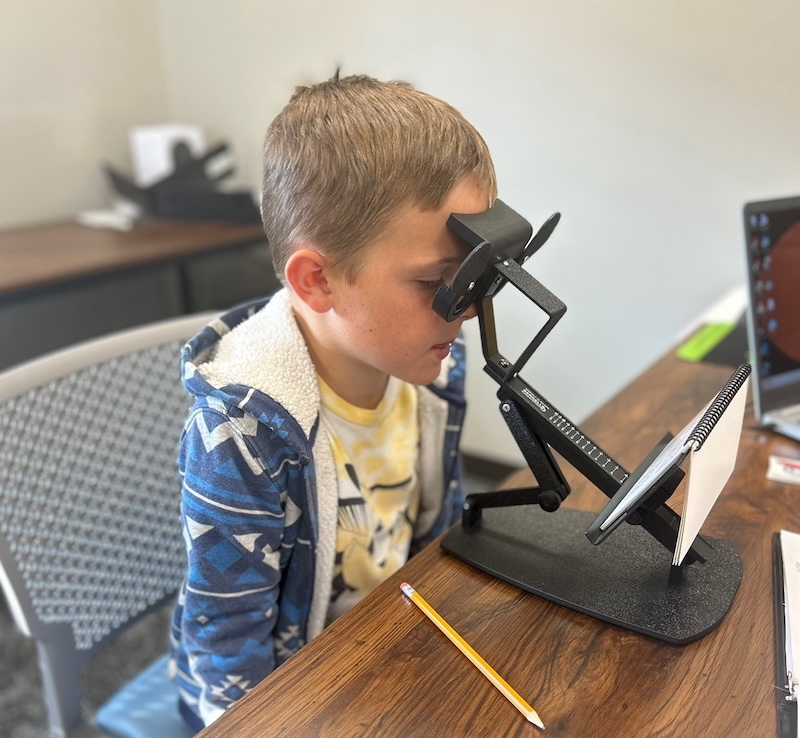Vision Therapy
Comprehensive and evidence-based Vision Therapy treatment designed to improve or correct visual function and performance in Wichita.

Vision therapy is often used for issues that go beyond what glasses or contact lenses can address. It is similar to physical therapy, but instead of a joint or muscle, it works with the eyes and brain. There is a neurological component with this kind of therapy because the eyes are an extension of the brain. Our eyes help make “seeing” possible, but vision is reliant on the eye-brain connection. If either of these organs are not working properly, vision will be difficult or non-existent.
Learn more about Opticology Vision Therapy
What Vision Therapy Is
- Personalized Program: Vision therapy consists of customized exercises and activities tailored to a person’s specific visual problems. These exercises are intended to improve eye movement, focusing abilities, and coordination.
- Training the Brain: The therapy often involves training the brain to better process and interpret visual information. It addresses how the brain and eyes work together, aiming to enhance overall visual processing.
- In-Office and At-Home Exercises: Sessions take place in our office and often include a variety of visual tasks and exercises. Patients might also have home exercises to practice between sessions.
Common Goals
- Improving Eye Coordination: Helping eyes work together effectively, which is crucial for activities like reading or sports.
- Enhancing Focus: Strengthening the ability to maintain clear vision at various distances.
- Resolving Eye Strain: Reducing symptoms related to eye strain, such as headaches or fatigue, particularly from prolonged tasks like reading or screen use.
- Addressing Visual Processing Issues: Helping individuals who have difficulty interpreting visual information, such as those with learning disabilities or certain neurological conditions.
Typical Conditions Treated
- Strabismus (Eye Turn): Misalignment of the eyes.
- Amblyopia (Lazy Eye): Reduced vision in one eye that did not develop properly.
- Convergence Insufficiency: Difficulty in maintaining eye alignment while looking at close objects
- Binocular Vision Dysfunction: Problems with how the eyes work together at a team.
- Oculomotor Dysfunction: Difficulty with moving the eyes smoothly, tracking objects, or shifting gaze from one point to another.
See a difference in your child’s school performance!
If your child has been diagnosed with a reading or learning difficulty or just not reaching their potential at school, or on the sports field, schedule an appointment today with Dr. Laura Aelvoet. The team at Opticology Eyecare aims to provide the best possible solution for the patient’s eye health and vision needs. By utilizing the latest technologies and evidence-based treatments, we can ensure that each patient maintains optimal eye health.

